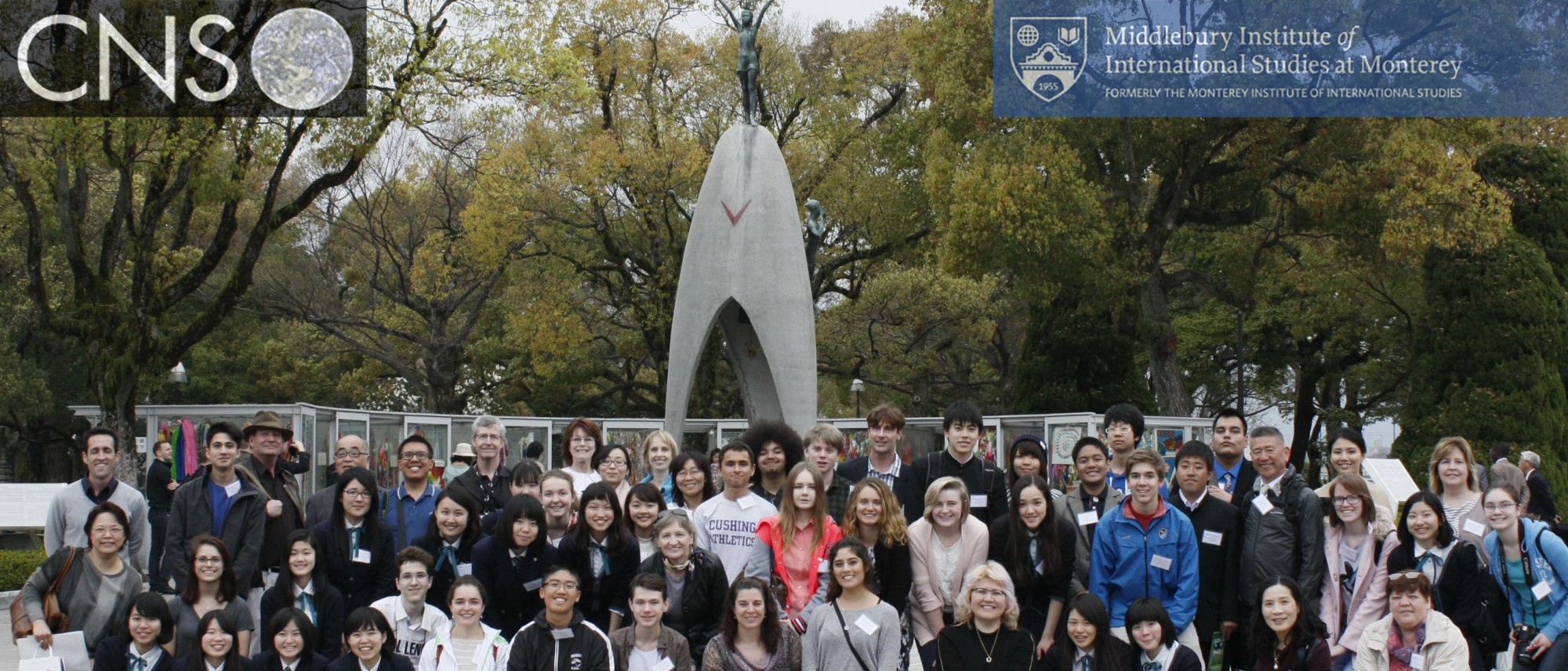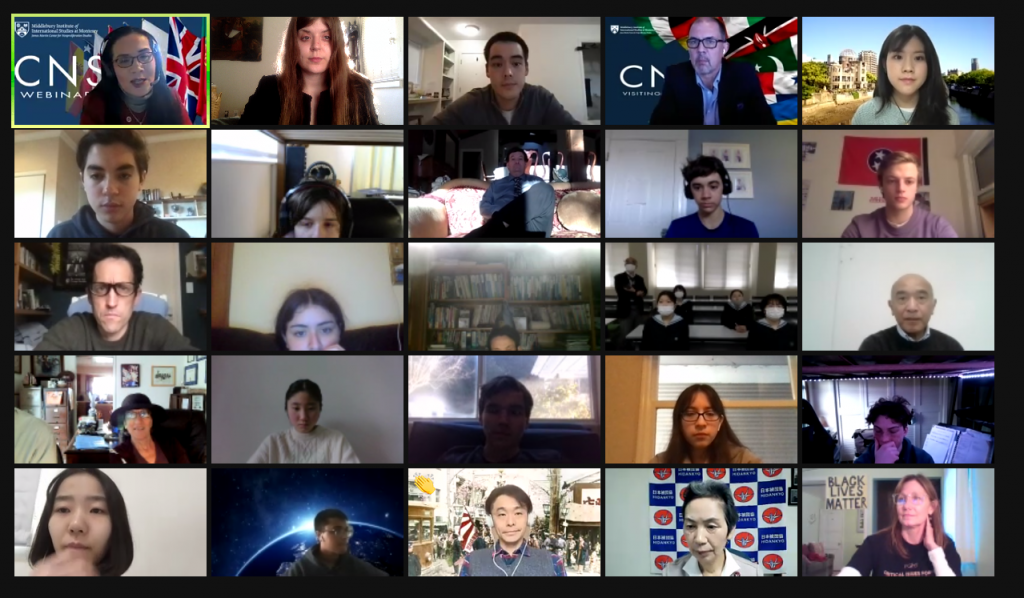March 24, 2021
Masako Toki
On March 12, 2021, the James Martin Center for Nonproliferation Studies (CNS) hosted the Critical Issues Forum (CIF) third Speaker Series featuring three distinguished guest speakers from Japan.
The Speakers
The first speaker, Ms. Masako Wada, is the Assistant Secretary General of the Nihon Hidankyo’ (The Japan Confederation of Atomic and Hydrogen Bomb Sufferers Organization). She is also a Hibakusha, an atomic bombing survivor, from Nagasaki. The other two speakers were Ms. Anju Niwata, a student, and Professor Hidenori Watanave, from the University of Tokyo. Ms. Niwata is a CIF alumna from Hiroshima Jogakuin Senior High School. Ms. Niwata and Professor Watanave co-authored a best-selling book, Rebooting Memories of Prewar & War through Colorized Photographs in Collaboration with AI and Human (In Japanese: AIとカラー化した写真でよみがえる戦前・戦争) based on their project “Rebooting Memories.” This book has a compilation of 355 colorized photos and aims to bring past wartime memories to the present. These colorized photos revitalize and reboot memories of those who were involved in past events, making it more relatable to younger generations. By visualizing and empathizing with the suffering of the victims and survivors of war, including atomic bombings survivors, youth can better contribute to peace and disarmament.
Hibakusha Testimonial
Ms. Wada shared a testimonial of her atomic bombing experience, which included her heart-wrenching experiences and the memories her mother shared with her. Her sincere and powerful cry for nuclear abolition that “human beings cannot coexist with nuclear weapons” compelled the audience to understand more clearly the necessity of nuclear disarmament. She called for the younger generations to take the baton of nuclear abolition. During the question-and-answer session, while responding to several questions related to the health, social, and environmental impacts of nuclear weapons, Ms. Wada illustrated the unimaginable sufferings that Hibakusha have endured like the lingering illnesses as well as the discrimination against them as Hibakusha. She claimed that atomic bombing survivors are not merely survivors, but fighters aiming to achieve a world free of nuclear weapons with their important mission.
English text of the Hibakusha Speech. Translated by Japanese T&I Program.
Rebooting Memories
After the audience learned about the catastrophic impact of the use of nuclear weapons against humanity by listening to the Hibakusha testimonial, Professor Watanave and Ms. Anju Niwata presented their project on “Rebooting Memories.” This project showed how the use of colorized photos galvanizes interest in the more human aspects of war, especially the personal histories of the atomic bombing survivors.
Professor Watanave explained the rationale behind the colorization of old black and white photos. When one visualizes the added colors that old photographs should have had, the viewer can more easily imagine and relate to the events depicted the original black and white photos. As Professor Watanave and Ms. Niwata wrote in this article, “This bridges the psychological gap between past events and modern daily life, sparking conversation.”
Ms. Niwata started her presentation with her short video that won the Student Prize at the United for Peace Film Festival (UFPFF) in 2018. The video is titled “Rebooting Memories: Hiroshima’s time advancing and breathing by colorized photographs.” This five-minute video epitomizes her nuclear disarmament project activities, which included interviewing Hibakusha in Hiroshima.
Ms. Niwata introduced her research question: “how can people who have never experienced the war pass on the thoughts and memories of the war survivors into the future?” She concluded that “Rebooting Memories” is an innovative method that uses technology to restore and convey experiences, memories, and aspirations of war survivors and Hibakusha. Ms. Niwata also highlighted the importance of peace education from various perspectives and approaches.
Inspiring Younger Generations
Listening to survivors’ first-hand experiences, as well as seeing the colorized prewar and war time photos, enhances youth interest in being more involved in peace and disarmament activities.
At the 2018 CIF conference held in Monterey, where Ms. Niwata participated from Hiroshima Jogakuin Senior High School, CNS invited Ms. Susan Southard as a keynote speaker. She is an author of the award-winning book, “Nagasaki: a life after nuclear war.” The “Rebooting Memories” project resonated with what Ms. Southard wrote in the preface of her book: “The stories of those who were beneath the mushroom clouds can transform our generalized perceptions of nuclear war into visceral human experience.” By empathizing with the pain of others as one of the late Hibakusha stated, youth can enhance the nuclear disarmament discourse from the humanitarian perspective. Disarmament and nonproliferation education, such as the Critical Issues Forum, can be driving forces for youth to engage more actively in global peace and security.
Visit the website for more information about the Critical Issues Forum.



